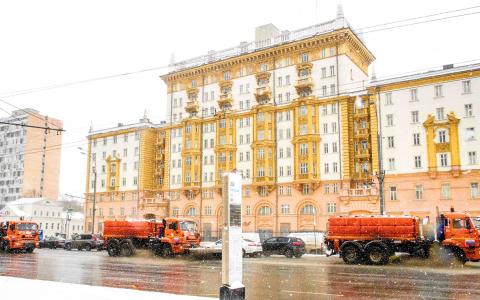Britain yesterday hailed the mass expulsion of more than 100 suspected Russian spies around the world as a “turning point” for the West’s attitude to a “reckless” Russia, as Moscow warned it would retaliate against “loutish behavior.”
Ireland yesterday became the latest nation to order out a Russian diplomat, with at least 117 Russian diplomats ordered out by 24 governments over two days, dwarfing similar measures during Cold War spying disputes.
“Never before have so many countries come together to expel Russian diplomats,” British Secretary of State for Foreign and Commonwealth Affairs Boris Johnson wrote in the Times newspaper, calling it “a “blow from which Russian intelligence will need many years to recover.”

Photo: AFP
“I believe that yesterday’s events could become a turning point,” he said, adding: “The Western alliance took decisive action and Britain’s partners came together against the Kremlin’s reckless ambitions.”
The expulsions were a response to the poisoning of Russian double agent Sergei Skripal and his daughter Yulia with a nerve agent in Salisbury, England, on March 4.
Skripal, a Russian military intelligence officer imprisoned by Moscow for passing on information about Russian agents in various European countries, came to Britain in a 2010 spy swap.
Britain earlier ordered the expulsion of 23 Russian diplomats after blaming Moscow for the attack — a charge fiercely denied by Moscow, which has pointed the finger at British intelligence.
Russia yesterday promised it would hit back.
“We’ll respond, have no doubt! No one wants to put up with such loutish behavior and we won’t,” Russian Minister of Foreign Affairs Sergei Lavrov said on the sidelines of a conference in Uzbekistan.
Lavrov said the coordinated response was the result of “colossal pressure, colossal blackmail” from the US.
Washington led the way in a coordinated response after Britain’s calls for international action by ordering out 60 Russians in a new blow to US-Russia ties.
Australia, Canada, Ukraine and 17 EU states matched the move with smaller-scale expulsions.
NATO Secretary-General Jens Stoltenberg yesterday announced that the alliance would expel seven staff from the Russian mission.
“These expulsions are particularly destructive for US-Russia relations,” Russian foreign policy analyst Fyodor Lukyanov wrote in the Vedomosti daily.
“Relations between Russia and the West are entering a period of full Cold War,” he said.
The Izvestia daily dismissed the expulsions as a “russophobic flashmob.”
In his Times article, Johnson said the attack fell into pattern of “reckless behavior” by Russian President Vladimir Putin, including the annexation of Crimea, adding: “The common thread is Putin’s willingness to defy the essential rules on which the safety of every country depends.”
Additional reporting by AP

The US government has signed defense cooperation agreements with Japan and the Philippines to boost the deterrence capabilities of countries in the first island chain, a report by the National Security Bureau (NSB) showed. The main countries on the first island chain include the two nations and Taiwan. The bureau is to present the report at a meeting of the legislature’s Foreign Affairs and National Defense Committee tomorrow. The US military has deployed Typhon missile systems to Japan’s Yamaguchi Prefecture and Zambales province in the Philippines during their joint military exercises. It has also installed NMESIS anti-ship systems in Japan’s Okinawa

‘WIN-WIN’: The Philippines, and central and eastern European countries are important potential drone cooperation partners, Minister of Foreign Affairs Lin Chia-lung said Minister of Foreign Affairs Lin Chia-lung (林佳龍) in an interview published yesterday confirmed that there are joint ventures between Taiwan and Poland in the drone industry. Lin made the remark in an exclusive interview with the Chinese-language Liberty Times (the Taipei Times’ sister paper). The government-backed Taiwan Excellence Drone International Business Opportunities Alliance and the Polish Chamber of Unmanned Systems on Wednesday last week signed a memorandum of understanding in Poland to develop a “non-China” supply chain for drones and work together on key technologies. Asked if Taiwan prioritized Poland among central and eastern European countries in drone collaboration, Lin

BACK TO WORK? Prosecutors said they are considering filing an appeal, while the Hsinchu City Government said it has applied for Ann Kao’s reinstatement as mayor The High Court yesterday found suspended Hsinchu mayor Ann Kao (高虹安) not guilty of embezzling assistant fees, reducing her sentence to six months in prison commutable to a fine from seven years and four months. The verdict acquitted Kao of the corruption charge, but found her guilty of causing a public official to commit document forgery. The High Prosecutors’ Office said it is reviewing the ruling and considering whether to file an appeal. The Taipei District Court in July last year sentenced Kao to seven years and four months in prison, along with a four-year deprivation of civil rights, for contravening the Anti-Corruption

NO CONFIDENCE MOTION? The premier said that being toppled by the legislature for defending the Constitution would be a democratic badge of honor for him Premier Cho Jung-tai (卓榮泰) yesterday announced that the Cabinet would not countersign the amendments to the local revenue-sharing law passed by the Legislative Yuan last month. Cho said the decision not to countersign the amendments to the Act Governing the Allocation of Government Revenues and Expenditures (財政收支劃分法) was made in accordance with the Constitution. “The decision aims to safeguard our Constitution,” he said. The Constitution stipulates the president shall, in accordance with law, promulgate laws and issue mandates with the countersignature of the head of the Executive Yuan, or with the countersignatures of both the head of the Executive Yuan and ministers or